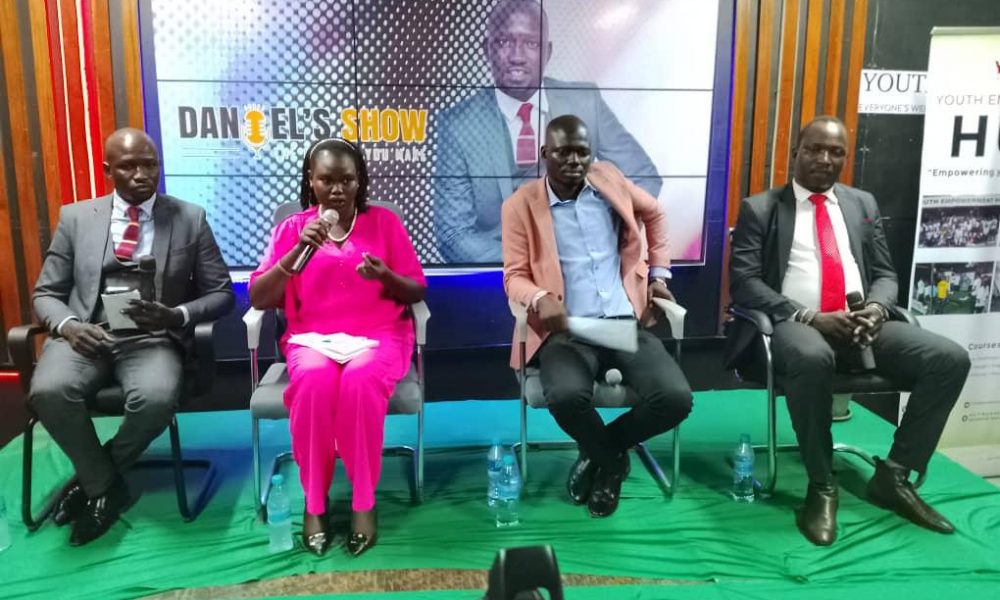By Gladys Fred Kole
Lack of awareness regarding sexual exploitation and harassment is creating more room for sexual misconduct in South Sudan.
Director of Catholic Radio Network, Mary Ajit, said awareness in regard to sexual exploitation and harassment is one of the areas that have been neglected in the country.
According to her, the absence of an awareness campaign against sexual exploitation, is why most people lack knowledge on how, it looks like.
“In our context, it is a strategy used to bring women down, which is why in most families, daughters and wives are not allowed to work because the husbands are aware” Ms. Ajit said.
She said that sexual exploitation and harassment is being used to derail participation of women in public affairs.
“Few women have joined the political parties; when the men see that you’re becoming strong, they will target you, and this is the only weapon they will use; it is discouraging women,” Mary hinted.
She made her sentiments known on Tuesday during the Daniel Mwaka show, under the theme “Sexual Exploitation and Harassment at Work.”
According to Mary, the saddest part is that it happens at the person’s lowest point in life, and the other party takes advantage of that.
She said when most women are about to be promoted, that’s what they go through, causing frustration.
“We have cultural norms that have made us normalize everything because the person who reports abuse becomes the victim; you become victimized, hated, and become a target for whatever is around you. Even the community will reject you; they will be like, why didn’t you protect yourself?” Mary echoed.
“Something are normal if you ask people, but sexual abuse is defined by the person who defines it because a touch or hug to some people is normal, but if you as a person don’t feel comfortable, then that is sexual abuse,” she cited.
Mary noted that if you move around, you will find that even simple human resource policies some organizations don’t have.
She stressed that every institution, both public and private, must have those human resources policies in place.
“There’s room for institutional bodies; the RRC registers annually but is there any audit around them regarding sexual harassment?” she questioned.
Mary strongly suggested that foreign companies shouldn’t just be allowed to invade the country without checking their background, saying that unless it is an extension of another company, it shouldn’t be a foundation.
“How can you come and start a company or organization when back home you don’t have any and it never existed? These alone should raise an eyebrow.” She underlined.
Meanwhile, Data Gordon, the executive director of Men for Women, who was also one of the panelists, emphasized that if you compliment a woman just once and not consistently at work, that can’t be termed sexual harassment, but if you do it every day and frequently, then there’s an intention and it’s not safe.
He urged everyone to be kin right from the employment procedure if there’s a commitment from the organization and company to prevent sexual exploitation and harassment.
“When you go to the ministry of labor, the clause on safeguarding is very shallow; these are certain things that promote this to happen; report it, and if officials sit on it, call the media as long as you have evidence.” Gordon advised.
For his part, panelist Kenyi Lugala, a lawyer and executive director of law and society, said the country, being very young and yet to go for its first elections, has a lot to do.
“At the moment, there’s acute poverty, drought, trauma, refugee influx, abuse, and addiction; all these situations can lead to situations of sexual abuse,” Lugala noted.
He underlined that the country at present has laws, but they are either fake or ambiguous.
Yes, our laws are not yet good, but for now, our laws are there to protect our public decency and our women as well; we have a provision in Section 250 that speaks about sexual harassment and exploitation,” he said.
The advocate underscored that many times it’s hard to deal with sexual harassment cases in organizations and companies, especially when HR is involved, or someone is in a position of power.
“The law has made it a bit strict, so always be on guard and have evidence before you report someone,” Lugala further advised.
However, David Ayuel, a practicing lawyer who was a participant in the show, stressed that sometimes he feels very bad whenever he sits and reviews “our laws”.
“They are very useless, and I want to say that our biggest problem is our government.” Ayuel echoed.
He said once the government has failed to protect its citizens, even the citizens themselves become prey to one another.
“How are we protecting our women, children, and ourselves? In other countries, sexual offences are taken very seriously, but in our country, anybody convicted will sit comfortably in their house a day after committing an offence. Our nation is not even caring.” Ayuel decried.
“People are employing personal assistance, office managers are very beautiful young women, and perhaps they don’t know what they are going to do in some of these government offices.” He wondered.




